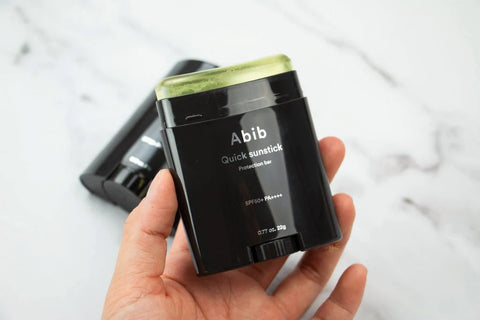All You Need to Know About Sunscreens
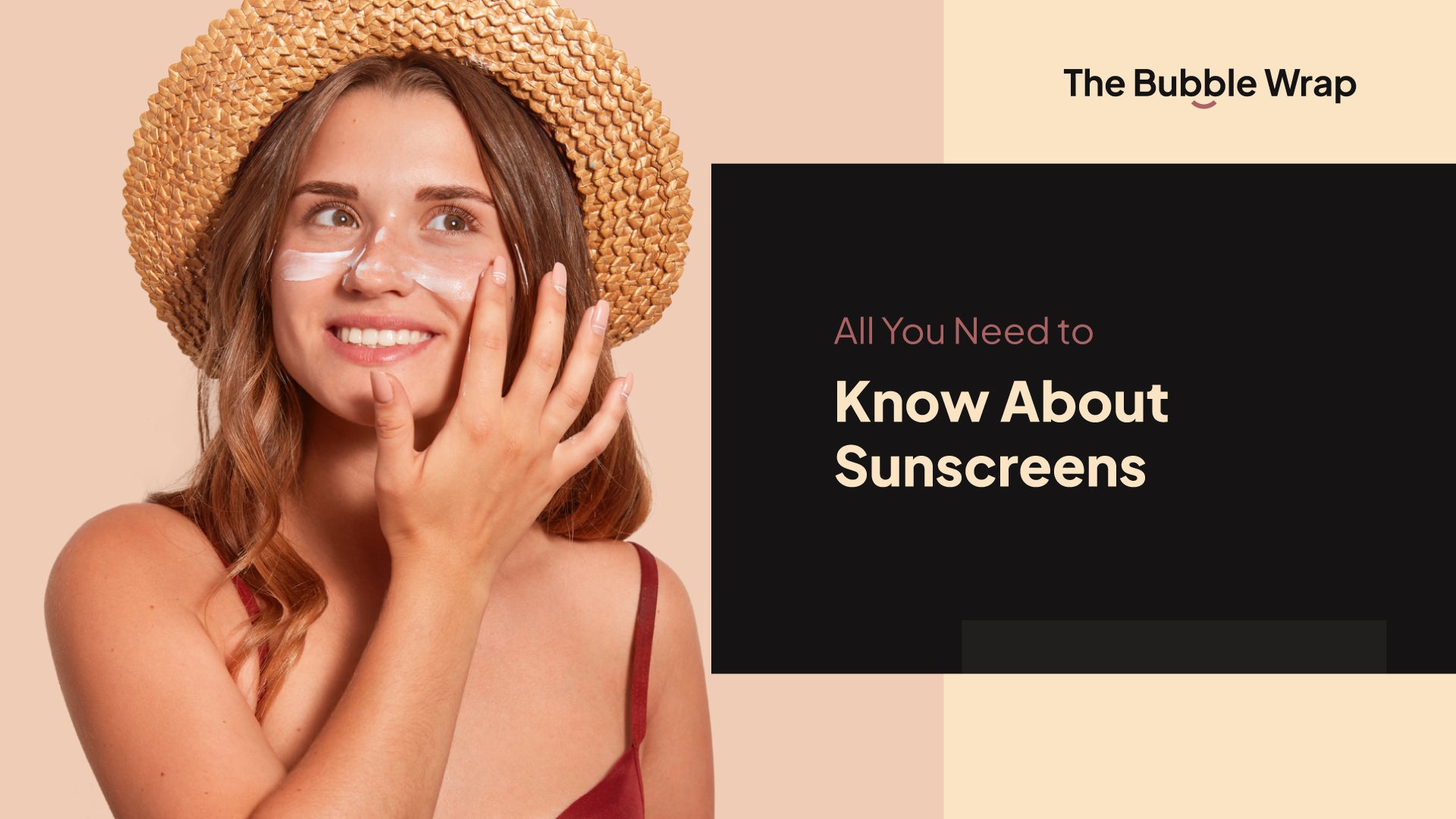
A cold glass of lemonade, your favourite pair of sunglasses, a hat to complete the look, and that new book you've been itching to read this weekend – sounds like the perfect sun-soaked day, doesn't it? But hold on just a moment!
Picture this, you basking in the sun's warmth, protected not only by your accessories but also by the invisible shield of sunscreen.
Before you start your sunny adventure, there's one important element you absolutely cannot leave behind – Sunscreen. One of the most essential skincare products that ties up all the efforts and love you put into your skin.
So, let's get started and dive into the world of sunscreens, find yourself a sunscreen cream for face as well as the body.
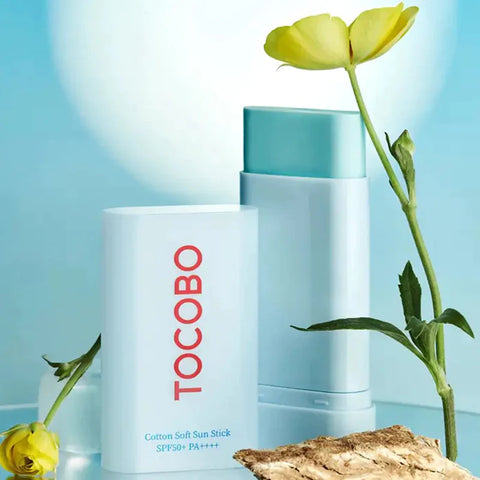
What Is Sunscreen? The Science behind Sunscreen and Spf
Sunscreen, Sunblock or Sun cream whatever you call it, is one of the most important skincare products especially made to protect your skin from the harmful effects of ultraviolet (UV) radiation from the sun. It absorbs and reflects the UV rays, and reduces their penetration into the skin. Made with organic as well as inorganic compounds. Organic filters absorb UV radiation and transform it into harmless heat, while inorganic filters, like zinc oxide and titanium dioxide, act as a physical barrier by reflecting and scattering UV rays.
Sunscreens shield against both UVA and UVB rays, as each type of radiation affects the skin differently.
Now that we've covered the concept of sunscreen, let's take a moment to understand what SPFs are.
Sun Protection Factor (SPF) is a numerical gauge of a sunscreen's effectiveness in safeguarding the skin from UVB rays, the primary culprits behind sunburn.
SPF indicates the factor by which the time it takes for unprotected skin to burn is extended.
Benefits of Sunscreen
If you're still not convinced don't worry this action is especially for you. Sunscreen is a superhero for your skin. Sunscreen acts as a vital shield for your skin, crucial for maintaining its health and beauty. In this guide, we'll uncover the numerous remarkable benefits that sunscreen offers, from warding off sunburns to preserving a youthful and smooth complexion.
Let's venture into the realm of sunscreen and explore its extraordinary advantages in facial skincare.
1. Protection from UV rays
Sunscreen helps you shield your skin from the harmful effects of ultraviolet (UV) radiation from the sun. There are two types of UV radiation that sunscreen cream for face can save you against UVA and UVB when you step out in the sun
- UVA rays can prematurely age your skin, causing wrinkles and age spots.
- UVB rays are responsible for sunburn and can contribute to the development of skin cancer.
Sunscreens like Dr Jart+Every Sun Day Waterproof Sun Milk SPF 50+/PA ++++ and Missha All Around Safe Block Soft Finish Sun Milk are great choices for complete protection against these harmful rays.
2. Skin Cancer Prevention
Consistently using sunscreen can substantially decrease your chances of developing skin cancer, encompassing melanoma, basal cell carcinoma, and squamous cell carcinoma.UV radiation is a known carcinogen, and sunscreen cream for face helps block or absorb these harmful rays.
3. Sunburn Prevention
Sunscreen also serves as a protective barrier against sunburn, a condition that can be both painful and result in enduring skin damage. The application of sunscreen can additionally lower the likelihood of experiencing skin peeling and blistering following prolonged sun exposure. Sunscreen cream for face and body comes in a single product as well. The Beauty of Joseon Mugwort + Camilia Matte Sun Stick can be used on the face as well as the body.
4. Skin Health
Sunscreen serves as a versatile protective barrier, maintaining healthy and youthful-looking skin by preventing sun-induced damage such as wrinkles, fine lines, age spots, and sun-related skin conditions like sun allergies, melasma, and rosacea, while also safeguarding individuals with sun sensitivity conditions or medications from adverse skin reactions
4. Protection against Tanning
Consistent use of sunscreen cream for face and body throughout your life can help maintain the health and appearance of your skin as you age, while also preventing tanning and preserving your natural skin tone, even in the face of sun exposure.
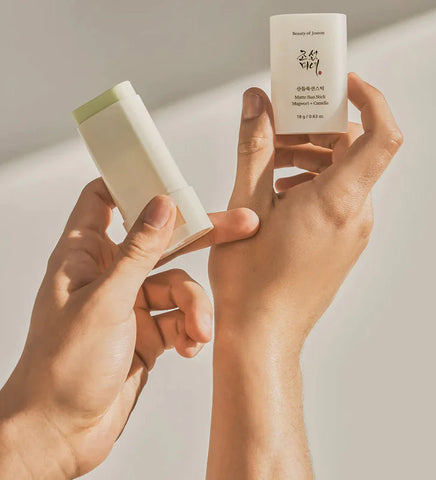
Busting Myths: Truth about Sunscreen
1. Higher the SPF, Higher the Protection.
Many companies claim that sunscreen with an SPF of 100 provides more than triple the sun protection of an SPF 30. In reality, sunscreen with an SPF of 30 will block 97 per cent of the sun’s rays.
Higher SPF sunscreen cream for face costs much more than a sunscreen with SPF 30, but the expensive sunscreen will only block an additional 1 to 2 per cent, and no sunscreen can block 100 percent. The SPF also has no impact on the length of time sunscreen will protect you; the same duration applies for both low- and high-SPFs, typically two hours or less.
2. You Don’t Need Sunscreen When Indoors.
Even though glass can stop UVB rays, it can't block UVA rays, which might raise your chances of getting skin cancer. So, if you spend a long time in the sun by a window (like on a long car ride or sitting near a window at work), your skin could still get hurt. Even when you're on planes, trains, or buses, UVA rays can get through the windows. So, when you're travelling, make sure you and your family use sun protection like sunscreen cream for face as well as body.
3. All sunscreens are the same.
Sunscreens are not all the same. Chemical and Physical are two types of sunscreen. Different sunscreen for different uses, and suits different skin types.
Chemical sunscreens absorb the UV rays, they are lightweight and easy to apply. On the other hand, Physical sunscreens have minerals in them, creating a physical barrier on the skin's surface that reflects and scatters UV rays. These sunscreens are thicker and provide immediate sun protection.
Your choice between these types may depend on personal preference and skin sensitivities.
4. Clothes will shield you against the sun’s rays
The type of clothing you wear can impact your sun safety, but it can not give you complete sun protection. Darker and brighter colours are more effective at absorbing UV rays, offering better protection compared to white or pastel shades.
Apart from this, denser fabrics offer extra protection as compared to thin, lightweight fabrics.
-
Sunscreens cause Cancer
Incorrect! One of the most prevalent misconceptions is the unfounded belief that sunscreen leads to cancer. In fact, there is no substantial medical evidence supporting this notion. On the contrary, there is ample medical evidence pointing to the fact that cancer can be triggered by exposure to UV rays from the sun.
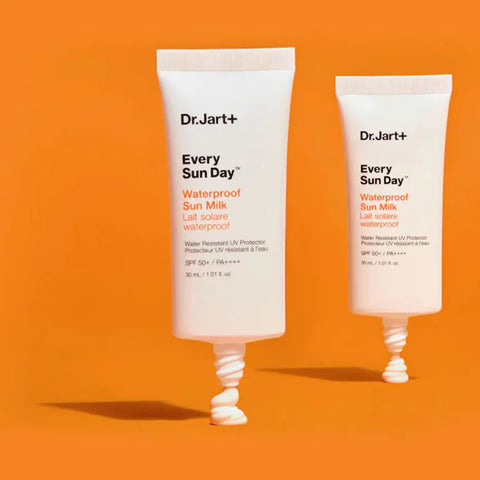
When and How to Apply Sunscreen
When To Apply Sunscreen
How To Apply Sunscreen
FAQs
Can you use powder sunscreen?
Yes, powder sunscreen is a convenient option for reapplication, offering ease of use and a matte finish.
What is the ideal SPF level for sunscreen?
SPF 30 to 50 offers adequate sun protection; choose based on your skin type and sun exposure. For best results use SPF 50 sunscreen cream for face, like Tocobo Cotton Soft Sun Stick SPF50+ PA+++ ++
How many times a day should I put on sunscreen?
Reapply sunscreen every 2 hours, especially during extended sun exposure, to maintain its effectiveness and keep your skin protected.
Can people with acne-prone skin use sunscreen cream for their face?
Yes, people with acne-prone skin should use non-comedogenic sunscreen to avoid clogging pores and aggravating acne. Axis Y Complete No-Stress Physical Sunscreen is a great sunscreen cream for the face, especially acne-prone ones.
Conclusion
In the world of skincare, sunscreen is your trusty sidekick, shielding you from UV villains. We've debunked myths, learned the 'how' and 'when,' and discovered its superhero benefits. So, remember, when in doubt, slather it on and shine on, sun-safe and carefree! Your skin will thank you for the extra love and protection.
Check out The Bubble Wrap for more sunscreen and find the right fit for you. Give your face the love and protection it deserves.
